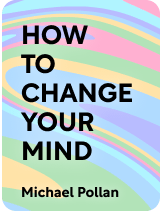

This article is an excerpt from the Shortform book guide to "How to Change Your Mind" by Michael Pollan. Shortform has the world's best summaries and analyses of books you should be reading.
Like this article? Sign up for a free trial here.
What’s the relationship between psychedelics and religion? How were psychedelics used in the ancient world?
In ancient times, psychedelics used to play a big role in religion. But as How to Change Your Mind says, the Christian church has a tense relationship with psychedelics that offer transcendental experiences to its users.
Keep reading to learn more about the Church’s reaction to psychedelics.
History of Psychedelics in the Ancient World
Humans’ relationship with psychedelics is longer than recorded history. Pollan tells us that indigenous cultures all over the world have developed unique relationships with natural consciousness-altering substances and have used them in healing and spiritual practices for thousands of years. Additionally, psychedelics and religion go back further than many imagine.
Archaeologists have found evidence of the use of psychedelic substances well into prehistoric times, and written documentation of their use goes as far back as ancient Greece. Some scholars believe the earliest Christian eucharist rituals in Greece were carry-overs from ancient Dionysian rituals revolving around a psychedelic brew. And cultures throughout Mesoamerica used mushrooms and other psychedelics in their religious practices.
But these practices would all come under attack by the Roman Catholic Church, first in ancient Greece and then later in the 16th and 17th centuries during the Spanish colonial conquest of the Americas. Pollan says Spanish priests who missionized the Aztecs in modern-day Mexico declared that the Aztecs’ consumption of mushrooms was a communion with the devil. These kinds of assumptions resulted in deliberate suppression of the use of psychedelics by native peoples, including the Aztecs—who used psychedelic mushrooms and morning glory seeds—and Native American tribes, some of whom use a psychedelic cactus called peyote. The Church quickly sought to eradicate these practices because they undermined the Church’s authority and threatened the spread of Christianity.
Despite repeated efforts by ruling powers to stamp out psychedelic use, Pollan says the ancient and enduring history of humans’ relationship with these substances suggests that they must serve important functions. Some scholars even suggest that psychedelics may be the most important historical driver of the development of religion and of the evolution of human consciousness.
Psychedelics vs. the Church—a 2,000-Year Power Struggle
In his book The Immortality Key, Brian Muraresku argues that the longstanding opposition to psychedelics by the Christian church is not simply a matter of preference or prejudice. He says it’s a 2,000-year deliberate effort to restrict the population’s access to a transcendental awareness that might liberate them from the need for scriptural dogma. In other words, if people have a direct line to God, they won’t need the church.
In this book, Muraresku presents evidence that Greeks and Romans during the time of early Christianity were mixing potent psychoactive herbs into their wine as part of religious rituals—these rituals, he argues, are likely the origin of the Christian eucharist.
By the fourth century, however, religious traditions in the region had become deeply fractured. On one hand, there were the “proto-Christians,” who practiced these psychedelic-inspired mystical traditions; on the other, there was a growing number of powerful leaders who wanted to establish a hierarchical church, within which only the leaders had access to power and divinity. This would become Orthodox Christianity.
According to Muraresku, the problem for the Orthodox church was that psychedelics made people realize they could directly commune with the divine. This undermined the church leaders’ power since those who “tasted the forbidden fruit” would not submit to Orthodox teachings. So, Muraresku contends that the Christian church has an explicit agenda to eradicate psychedelics specifically because they make people impossible to convert and control. And he points out that this “anti-drug” campaign is evident throughout history, including in the colonialist suppression of psychedelics and the observable attitudes of Christianity toward drugs—including psychedelics—today.

———End of Preview———
Like what you just read? Read the rest of the world's best book summary and analysis of Michael Pollan's "How to Change Your Mind" at Shortform.
Here's what you'll find in our full How to Change Your Mind summary:
- The long and complex history of humans' relationship with psychedelics
- Psychedelics' potential use for mental health treatment today
- Why there are so many cultural and legal issues surrounding psychedelics






